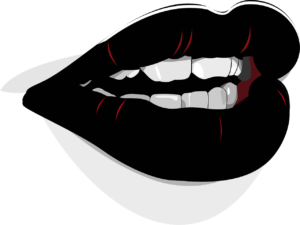Burning Mouth & Pepto Lips – Episode 107

Burning Mouth Syndrome
Burning Mouth Syndrome is defined as a burning sensation with no underlying cause. It may include dry mouth sensations with no true symptoms of dry mouth. BMS is accompanied by unremitting burning or pain but no mucosal changes or signs of injury or swelling.
3 Categories
- Increases throughout the day after waking
- Stays the same morning, during the day, and at night
- Has no pattern
Common Symptoms
- Bilateral pain of the tongue
- Chronic pain labeled as moderate to severe, or a 6-10 on the pain scale.
- Worsened by talking, stress, fatigue, or hot, spicy, or acidic foods.
Subjective Descriptions
- Dry mouth
- Change in ability to taste
- Accompanied by a headache
- Decreased appetite
- Improved by cold foods or drinks
Those who suffer from BMS may see temporary relief with topical analgesics (i.e. lidocaine or benzocaine) but see no improvement from systemic medications. Fifty percent of the cases have no apparent cause but do have some correlation with depression. This is a case of “the chicken or the egg”. Are people with depression more likely to have symptoms of BMS? Or are people with BMS more likely to become depressed?
Before someone can be said to have Burning Mouth Syndrome, many other issues must be ruled out.
- Deficiencies (iron, folate, B vitamins, zinc)
- Dry mouth
- Nerve damage
- Hypothyroidism
- Type 2 Diabetes
- Nocturnal habits (clenching, grinding, tongue-thrusting)
- Infection (thrush, herpes, HIV)
- A hiatal hernia (GERD)
- Medications (ACE inhibitors, anticholinergics)
- Myeloma (a blood cancer involving plasma cells)
Pepto Lips
Pepto-Bismol, aka Bismuth subsalicylate, has been used for decades for a variety of stomach complaints.
Bismuth is a good binder of toxins, in a similar way that carbon is in activated charcoal. And yes, bismuth is one of those elements on the periodic table. Subsacylate activates into salicylic acid (related to aspirin) and works to decrease inflammation of the gastric lining.
When bismuth binds with sulfur that is naturally in your saliva, it becomes bismuth sulfide, which has a black color and can stain your tongues and lips temporarily. Pepto overuse is the obvious cause of black lips.
Connect with me
Support us on Patreon
Join the Pharmacist Answers Podcast Community on Facebook
Subscribe: iTunes, Stitcher, GooglePlay, TuneIn Radio
Music Credits: Up In My Jam (All Of A Sudden) by – Kubbi https://soundcloud.com/kubbiCreative Commons — Attribution-ShareAlike 3.0 Unported— CC BY-SA 3.0 http://creativecommons.org/licenses/b…Music provided by Audio Library https://youtu.be/tDexBj46oNI



